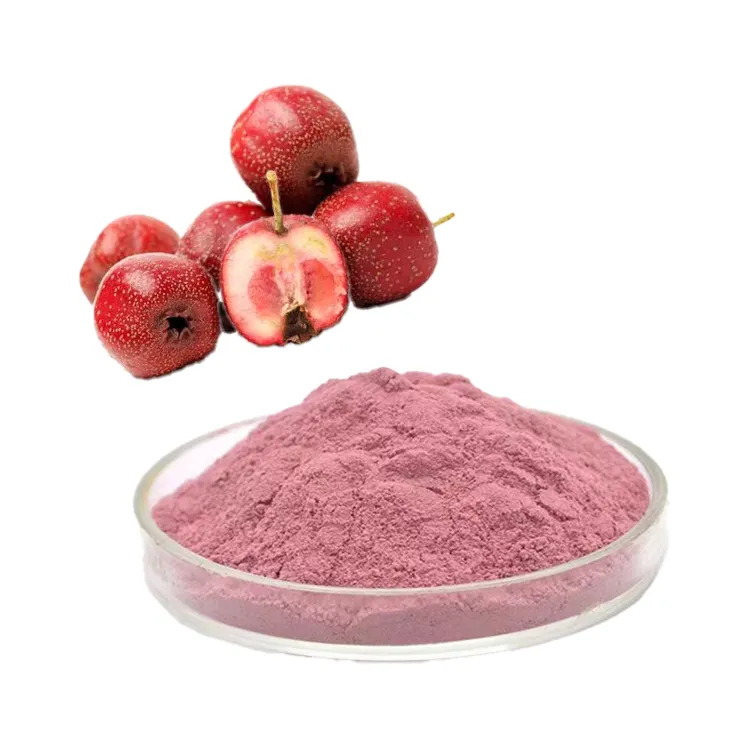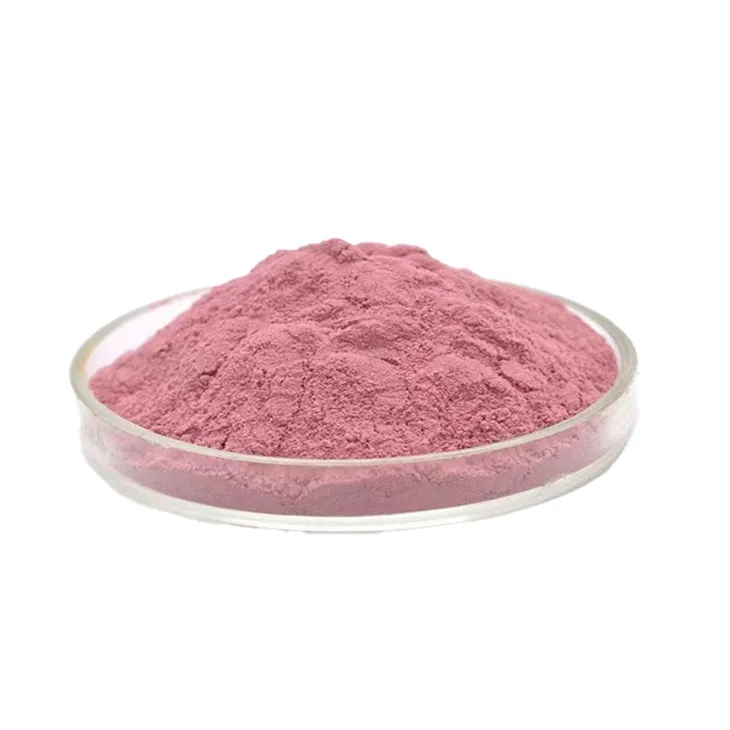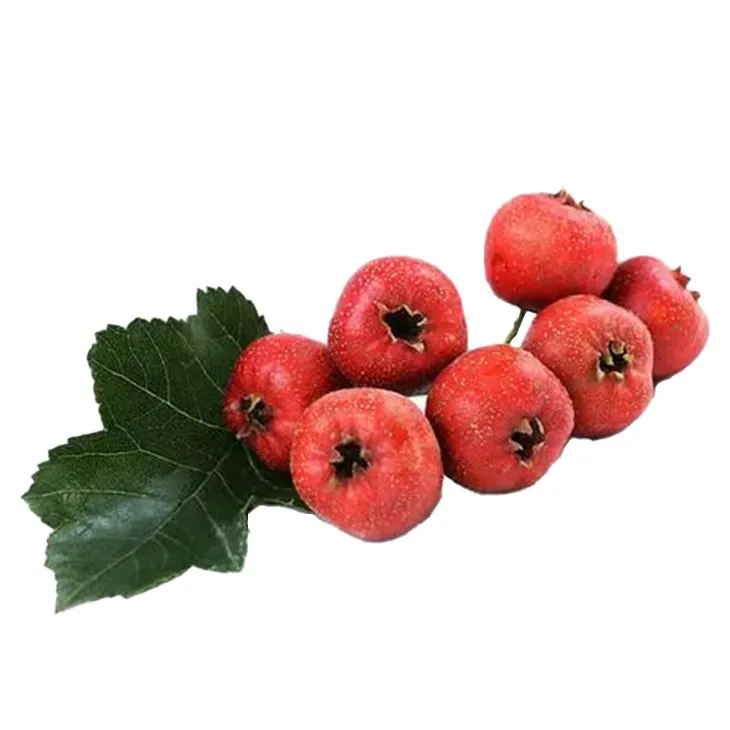- 0086-571-85302990
- sales@greenskybio.com
Nature's Gift, Health's Ally: A Final Look at Hawthorn Powder's Role in Wellness and Tradition
2024-07-04

Introduction
Hawthorn powder, a product derived from the hawthorn plant, has been a part of human health and cultural traditions for centuries. This natural substance holds a significant place in the world of wellness, offering a plethora of benefits that are both scientifically studied and deeply rooted in traditional medicine. In this comprehensive exploration, we will take a final look at Hawthorn powder's role in wellness and tradition, uncovering its antioxidant properties, its historical significance in herbal medicine, and its potential for enhancing overall well - being.

The Hawthorn Plant: A Brief Overview
The hawthorn plant, scientifically known as Crataegus, is a genus of shrubs and small trees that are native to temperate regions of the Northern Hemisphere. There are numerous species within this genus, each with its own unique characteristics. Hawthorn plants are known for their beautiful blossoms, which range in color from white to pink, and their small, bright red berries. These berries are the main source for making Hawthorn powder.
Hawthorn plants are also highly adaptable and can thrive in a variety of soil types and environmental conditions. They are often found in hedgerows, woodlands, and along the edges of fields. Their hardiness and widespread distribution have made them a familiar sight in many parts of the world, and have contributed to their long - standing use in different cultures.

Antioxidant Properties of Hawthorn Powder
Antioxidants play a crucial role in maintaining health by neutralizing harmful free radicals in the body. Hawthorn powder is rich in various antioxidants, such as flavonoids, phenolic acids, and proanthocyanidins.
Flavonoids
Flavonoids are a large class of plant - based compounds that have been extensively studied for their antioxidant and health - promoting properties. In hawthorn powder, flavonoids like Quercetin, rutin, and hyperoside are present. These flavonoids help to protect cells from oxidative damage by scavenging free radicals. For example, Quercetin has been shown to reduce inflammation and may have potential benefits in preventing chronic diseases such as heart disease and cancer.
Phenolic Acids
Phenolic acids in hawthorn powder, including chlorogenic acid and caffeic acid, also contribute to its antioxidant activity. These compounds can help to inhibit the oxidation of lipids in the body, which is important for maintaining healthy blood vessels. By preventing lipid peroxidation, phenolic acids may reduce the risk of atherosclerosis, a condition characterized by the buildup of plaque in the arteries.
Proanthocyanidins
Proanthocyanidins are a type of flavonoid polymer that is abundant in hawthorn powder. They are known for their strong antioxidant capacity and their ability to improve blood circulation. Proanthocyanidins can strengthen the walls of blood vessels, making them more elastic and less prone to damage. This can have a positive impact on cardiovascular health, as it helps to regulate blood pressure and improve the overall function of the circulatory system.

Hawthorn Powder in Herbal Medicine History
Hawthorn has a long and storied history in herbal medicine. It has been used for centuries in different cultures around the world to treat a variety of ailments.
Ancient Chinese Medicine
In traditional Chinese medicine, hawthorn has been used for over a thousand years. It was initially recognized for its ability to aid digestion. Chinese herbalists used hawthorn berries to treat conditions such as indigestion, abdominal pain, and food stagnation. The berries were often prepared as a decoction or dried and ground into a powder for consumption. Over time, its uses expanded to include the treatment of cardiovascular problems, as traditional Chinese medicine recognized the connection between the digestive system and the heart.
European Herbal Traditions
In Europe, hawthorn has also been a staple in herbal medicine. The ancient Greeks were among the first to document its use. They used hawthorn for its diuretic properties and to treat heart problems. In medieval Europe, hawthorn was often associated with magic and was used in various rituals. However, it was also used medicinally, particularly for heart ailments. Herbalists in the Middle Ages believed that hawthorn could strengthen the heart and improve circulation. As scientific knowledge advanced, the use of hawthorn in European herbal medicine continued to evolve, with more research being conducted on its effectiveness and safety.

Potential for Enhancing Overall Well - being
Hawthorn powder has the potential to enhance overall well - being in several ways.
Cardiovascular Health
- Blood Pressure Regulation: The antioxidant and vasodilatory properties of hawthorn powder can help to regulate blood pressure. By relaxing the smooth muscles in the blood vessel walls, it allows for better blood flow and can reduce high blood pressure. Studies have shown that hawthorn extract can be beneficial for patients with mild to moderate hypertension.
- Cholesterol Management: Hawthorn powder may also play a role in managing cholesterol levels. It can help to lower LDL (low - density lipoprotein) cholesterol, which is often referred to as "bad" cholesterol, while increasing HDL (high - density lipoprotein) cholesterol, or "good" cholesterol. This balance is important for maintaining healthy blood vessels and reducing the risk of heart disease.
- Heart Function Improvement: Hawthorn has been shown to improve heart function in several ways. It can strengthen the heart muscle, increase the force of heart contractions, and improve cardiac output. This is especially beneficial for individuals with heart failure or other heart - related conditions.
Digestive Health
- Digestive Aid: As mentioned earlier, hawthorn has a long history of use in treating digestive problems. Hawthorn powder can stimulate the production of digestive enzymes, which helps to break down food more efficiently. It can also relieve symptoms such as bloating, gas, and abdominal discomfort.
- Appetite Stimulation: For those with a poor appetite, hawthorn powder may be helpful. It can stimulate the appetite by increasing the secretion of gastric juices and promoting normal digestive function.
Mental Well - being
- Stress Reduction: The antioxidant and anti - inflammatory properties of hawthorn powder may also have an impact on mental well - being. Chronic stress can lead to oxidative stress and inflammation in the body, which can affect the brain. Hawthorn powder may help to reduce stress levels by reducing oxidative damage and inflammation, potentially improving mood and cognitive function.
- Sleep Improvement: Some people have reported that taking hawthorn powder has improved their sleep quality. While more research is needed in this area, it is possible that hawthorn's effects on stress reduction and overall relaxation may contribute to better sleep.
How to Incorporate Hawthorn Powder into Your Wellness Routine
If you are interested in incorporating hawthorn powder into your wellness routine, there are several ways to do so.
As a Dietary Supplement
Hawthorn powder is available in supplement form. It can be taken in capsules or tablets, following the recommended dosage instructions on the product label. When choosing a hawthorn supplement, it is important to look for a high - quality product from a reputable manufacturer. You should also consult with a healthcare provider, especially if you have any underlying health conditions or are taking other medications.
In Beverages
You can add hawthorn powder to various beverages. For example, it can be mixed into herbal teas, smoothies, or even water. This is a convenient way to consume hawthorn powder on a daily basis. When adding it to beverages, start with a small amount and gradually increase the dosage to find the amount that works best for you.
In Culinary Creations
Hawthorn powder can also be used in cooking and baking. It can be added to muffins, pancakes, or other baked goods to give them a unique flavor and a nutritional boost. In cooking, it can be used in sauces, marinades, or as a seasoning for meat and vegetables.
Precautions and Considerations
While hawthorn powder has many potential benefits, there are also some precautions and considerations to keep in mind.
Interactions with Medications
Hawthorn may interact with certain medications, especially those used to treat heart conditions. For example, it may potentiate the effects of blood - pressure - lowering medications or heart medications such as digoxin. Therefore, if you are taking any medications, it is essential to inform your healthcare provider before starting to use hawthorn powder.
Allergic Reactions
Some individuals may be allergic to hawthorn. Allergic reactions can range from mild symptoms such as skin rashes and itching to more severe symptoms like difficulty breathing. If you experience any allergic symptoms after consuming hawthorn powder, stop using it immediately and seek medical attention.
Dosage
It is important to follow the correct dosage when using hawthorn powder. Taking too much hawthorn powder may cause side effects such as nausea, dizziness, or low blood pressure. The appropriate dosage may vary depending on factors such as age, health status, and the specific product being used. As always, it is best to consult with a healthcare professional for personalized advice.
Conclusion
Hawthorn powder is truly a nature's gift and a health's ally. Its antioxidant properties, historical significance in herbal medicine, and potential for enhancing overall well - being make it a valuable addition to the world of wellness. Whether you are interested in improving your cardiovascular health, digestive function, or mental well - being, hawthorn powder may offer a natural and holistic approach. However, it is important to use it safely and responsibly, taking into account the precautions and considerations mentioned above. By understanding the role of hawthorn powder in wellness and tradition, we can make informed decisions about incorporating this natural product into our lives.
FAQ:
What are the antioxidant properties of hawthorn powder?
Hawthorn powder contains various bioactive compounds such as flavonoids, phenolic acids and proanthocyanidins. These compounds act as antioxidants. Antioxidants in hawthorn powder can neutralize free radicals in the body. Free radicals are unstable molecules that can cause damage to cells, DNA and proteins. By scavenging free radicals, hawthorn powder helps to reduce oxidative stress, which is associated with various chronic diseases and the aging process.
What is the historical role of hawthorn in herbal medicine?
Hawthorn has a long - standing history in herbal medicine. It has been used for centuries in different cultures. In traditional Chinese medicine, hawthorn has been used to improve digestion, invigorate blood circulation and relieve pain. In European herbal medicine traditions, it was often used to treat heart - related problems. For example, it was used to strengthen the heart muscle, regulate heart rhythm and improve blood circulation. Over time, its uses have been passed down and further studied for its potential health benefits.
How can hawthorn powder enhance overall well - being?
Hawthorn powder can enhance overall well - being in several ways. Firstly, as mentioned above, its antioxidant properties help protect the body at the cellular level. Secondly, its positive effects on the cardiovascular system can contribute to better heart health. This includes helping to lower blood pressure, reducing cholesterol levels and improving blood flow. Additionally, it may also have a positive impact on digestion. It can help to stimulate the secretion of digestive enzymes, improve appetite and relieve indigestion symptoms. All these factors combined can lead to an overall improvement in one's well - being.
Are there any side effects of using hawthorn powder?
Generally, when used in moderation, hawthorn powder is considered safe for most people. However, some individuals may experience mild side effects such as dizziness, nausea or upset stomach. It is also important to note that hawthorn may interact with certain medications, especially those for heart conditions or blood pressure. So, it is advisable to consult a healthcare professional before starting to use hawthorn powder, especially if you are on other medications or have pre - existing health conditions.
How can one incorporate hawthorn powder into their daily diet?
Hawthorn powder can be incorporated into the daily diet in various ways. It can be added to smoothies, mixed with yogurt or oatmeal for breakfast. It can also be used in baking, for example, added to muffin or bread recipes. Another option is to make a hawthorn tea by steeping the powder in hot water and drinking it. However, when adding it to food or drinks, it is important to start with a small amount and gradually increase the quantity to see how your body reacts.
Related literature
- The Role of Hawthorn in Cardiovascular Health"
- "Hawthorn: A Traditional Herb with Modern Therapeutic Potential"
- "Antioxidant Activity of Hawthorn Extracts"
- ▶ Hesperidin
- ▶ Citrus Bioflavonoids
- ▶ Plant Extract
- ▶ lycopene
- ▶ Diosmin
- ▶ Grape seed extract
- ▶ Sea buckthorn Juice Powder
- ▶ Fruit Juice Powder
- ▶ Hops Extract
- ▶ Artichoke Extract
- ▶ Mushroom extract
- ▶ Astaxanthin
- ▶ Green Tea Extract
- ▶ Curcumin
- ▶ Horse Chestnut Extract
- ▶ Other Product
- ▶ Boswellia Serrata Extract
- ▶ Resveratrol
- ▶ Marigold Extract
- ▶ Grape Leaf Extract
- ▶ New Product
- ▶ Aminolevulinic acid
- ▶ Cranberry Extract
- ▶ Red Yeast Rice
- ▶ Red Wine Extract
-
Oyster Mushroom Extract Powder
2024-07-04
-
Feverfew Extract
2024-07-04
-
Phyllanthus Emblica Extract
2024-07-04
-
Yellow Pine Extract
2024-07-04
-
Lemon Balm Extract
2024-07-04
-
Curcumin
2024-07-04
-
Pomegranate Extract
2024-07-04
-
Rose Hip Extract
2024-07-04
-
Ginseng Root Extract
2024-07-04
-
Angelica sinensis extract
2024-07-04





















